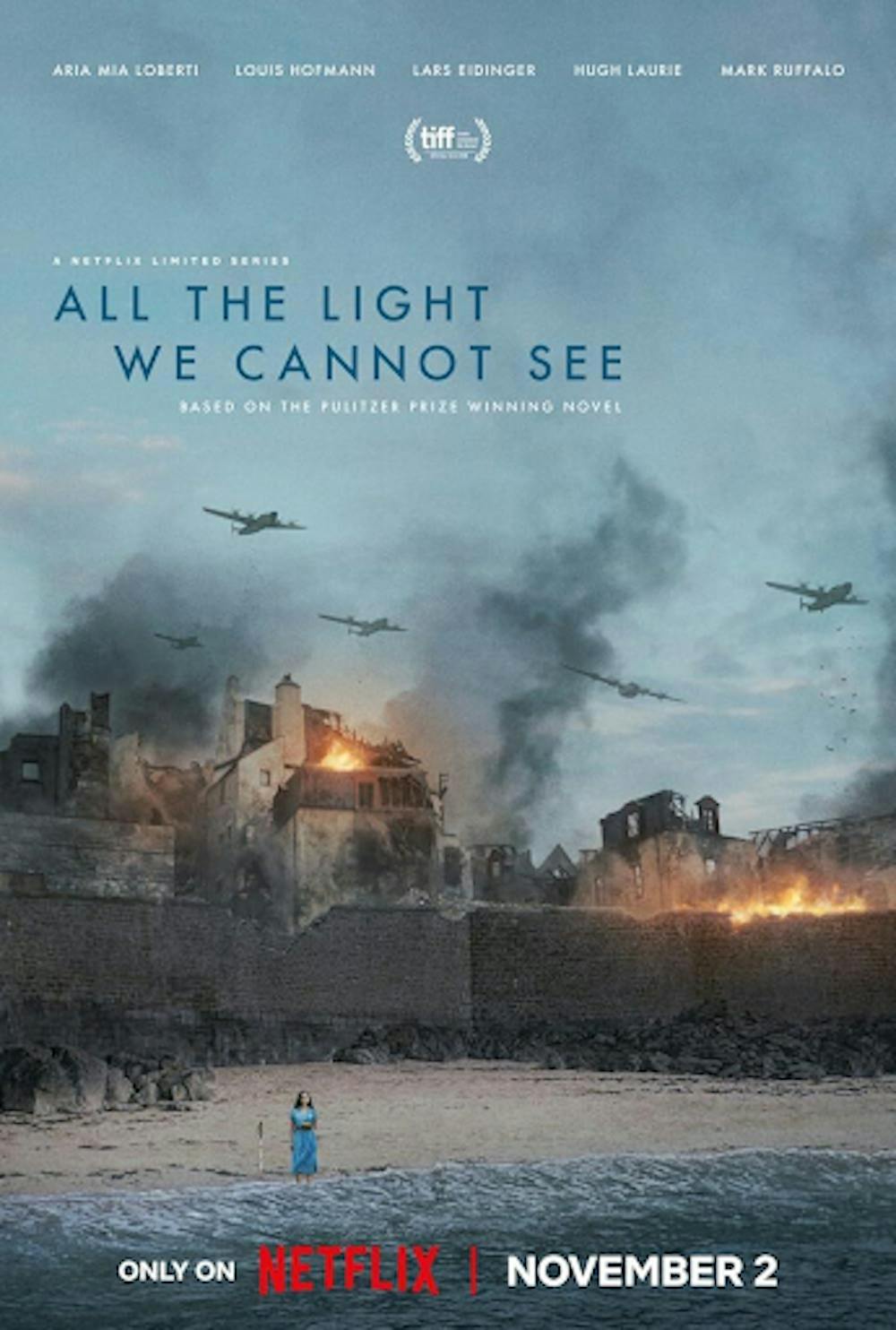By Bailei Burgess-Simmons
Staff Writer
On Nov. 2, Netflix released the miniseries “All the Light We Cannot See,” based on the Pulitzer Prize-winning novel by Anothony Doerr, and it adapted the book beautifully.
A quote from a distant mentor and a lesson so relevant, “The most important light in the world is the light you cannot see,” was a continuous sentiment across the four episodes.
Set during World War II, the series follows Marie-Laure (Aria Mia Loberti), an exceptionally intelligent blind teenager aiding the war effort through her illegally coded broadcasts, and Werner Pfennig (Louis Hofmann), a German soldier and radio prodigy tasked with finding and killing Marie.
When Paris is invaded, Marie and her father flee to Saint Malo, seeking refuge amongst family. Marie later finds herself left alone by her family in their attempts to aid the war, so she takes up broadcasting to help British and American troops.
Werner, on the other hand, was raised in an orphanage with his sister. His entire life, he had an affinity for radios and was able to build them using spare parts in just minutes. Against his will, he was thrust into an elite Nazi military school to be honed into a weapon for a team tasked with catching and executing illegal broadcasters.
The two, seemingly unrelated, youngsters came from challenging backgrounds, but their childhood escape was the same radio broadcast: shortwave 13.10, an illegal French station, employed by a man known as “the professor.” On that station, he spoke truths of the world, hoping to educate children, encouraging them to be free thinking and teaching them of peace in times of great unrest.
His mentorship would become the driving force behind both Marie and Werner’s rebellion.
In a show rife with the horrors of wartime, cruelties of the Nazi party and characters too good for their world, it is hard to believe there is any light at all.
However, “All the Light We Cannot See” does an appreciable job of balancing the grief and gore with romance and hope.
Director Shawn Levy, also known for his role in creating “Night at the Museum,” does a brilliant job of bringing the story to life. The scenic French landscapes contrasted by the immersive battle special effects makes the series a pleasure to watch.
Supporting actors Mark Ruffalo, who plays Marie’s father Daniel LeBlanc, and Hugh Laurie, who plays Marie’s uncle Etienne, have a certain heartening effect on the film, reminding viewers of the realities of war.
Despite the terrors experienced, Marie finds inspiration and, more importantly, comfort in the two father figures. In their very own ways, they further lend to the theme of the best light being the invisible ones. They both harbor a certain nobility and quality nature that guides Marie during her most challenging times, even when they are not there physically.
Similarly, Werner holds onto the light inside of him, despite the egregious acts he is forced to participate in, to make it through the war and, in the end, to find and defend Marie.
The war series is perfectly layered with tales of a cursed gem and a man, Sgt. Major Reinhold von Rumpel (Lars Eidinger), who will stop at nothing to find the gem.
Together, the plots fuse to create a war film that gloriously ties together themes of love, war, family, friendship and survival.







